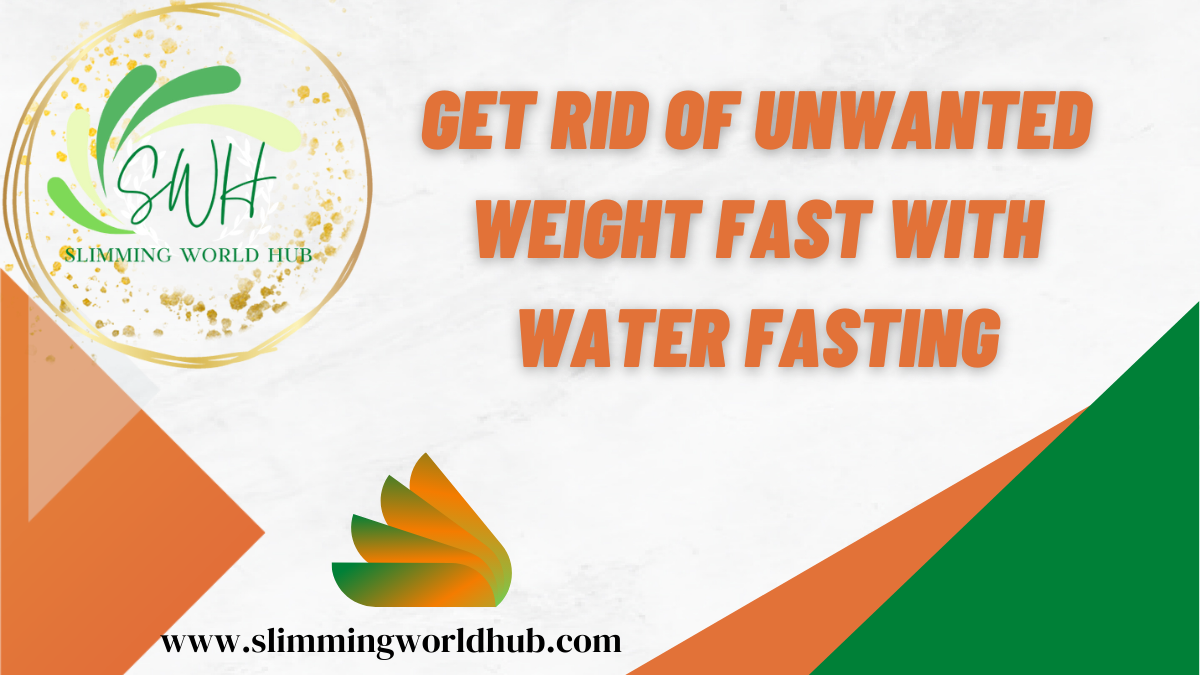Get Rid of Unwanted Weight Fast with Water Fasting

If you feel frustrated with dieting, water fasting might be the right approach. In fact, according to many diet experts, this may be the only way to safely shed unwanted weight while keeping it off once and for all. Here are some of the benefits of water fasting and how it can help you shed those unwanted pounds quickly and effectively. You’ll want to start your next fast immediately by the end of this article!
What is Water Fasting?
We’ve all heard that fasting can have incredible benefits, including detoxification and weight loss. But water fasting is a bit different from what you might be thinking. Instead of Eliminating food from your diet, water fasting restricts caloric intake. For example, a typical regimen may allow for drinking 2 cups of tea or coffee per day and an unlimited amount of water—this could account for as little as 500 calories daily. Of course, because most people are used to consuming significantly more than that in one sitting alone (and not eating for long periods), it’s going to be tough at first—but when you give your body time to adjust and break those old habits, things will get easier.
What are the benefits of fasting?
Fasting has been a part of religious traditions and spiritual practices throughout history. Although fasting isn’t required for healthy eating, it does offer numerous health benefits, including an improved immune system and mental clarity. The detoxification process also helps rid your body of unwanted, harmful substances that could be causing health problems. For example, toxins from some foods can build up in fat cells throughout your body over time—and cause serious long-term damage to your physical and mental health if not eliminated by fasting.
How do you start your first fast?
Depending on your unique situation, you may need to spend a little time planning out your fast. For example, if you have diabetes or high blood pressure or are pregnant or nursing, you’ll need to talk to your doctor before starting any fast. They may recommend that you avoid fasting entirely and try eating fewer carbs instead. If that’s the case for you, take some time to plan out how many calories you can eat every day while avoiding processed foods and sugars—it could be more difficult than fasting at first glance! Regardless of whether it’s your first time fasting, I always recommend easing into it.
A Day in the Life While Doing a Fast
If you have weight to lose and want to do it quickly, taking a fast is your best bet. A water fast is a great choice because it’s easy on your body and mind since all you need to drink is water. Since you are fasting, you should be careful not to overdo it by drinking too much at once or drinking too many liquids. Your primary goal will be to keep hydrated while losing as much weight as possible. Before starting a water fast, you should check with your doctor to ensure that your health will allow for such an extreme diet plan. While doing your fast, try not to exercise at all—even mild exercises like yoga are off-limits during a water fast.
Tips for Success
If you are thinking about trying a water fast, it’s important to prepare yourself. The process can take anywhere from 3-to 21 days, depending on how long you decide to go without food. Before starting, drink plenty of water (eight 8-ounce glasses or more) to hydrate your body properly. Sleep and exercise will help keep your energy levels up while completing water fast and hydrating. Be sure not to follow an extremely low-calorie diet before a water fast, as doing so may cause dehydration and other adverse effects on your health.
Common Questions and Concerns About Fasts
Is fasting safe? Before you begin any fast, it’s important to consider your overall health and medical history. Are you a generally healthy person, or do you have existing conditions that may be impacted by fasting? Should you consult your doctor first? The answer is it depends. If you’re generally healthy and not suffering from major ailments or illnesses, then probably not. If you have an existing condition that makes prolonged fasting unsafe (e.g., diabetes, malnutrition), seek medical advice before taking on a fast.
Leave a Reply